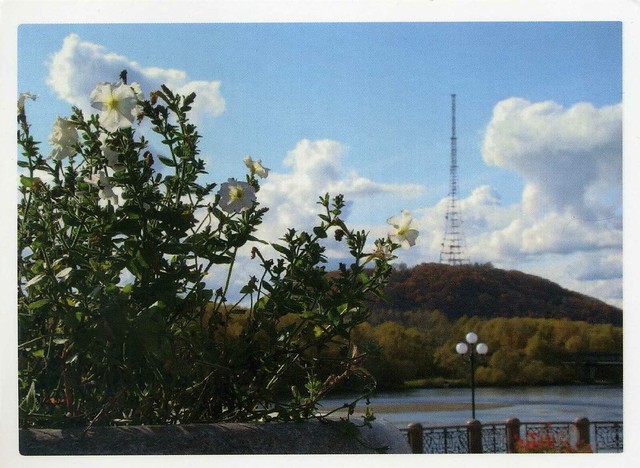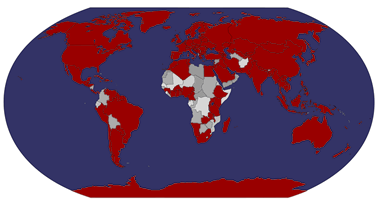It seems to be next to impossible to get any postcards from or of certain Russian regions. Jewish Autonomous Oblast is one of those regions, so I'm happy to at least have this Touchnote card I received from Olga in Russia last year.
Birobidzhan is a town and the administrative center of the Jewish Autonomous Oblast, Russia, located on the Trans-Siberian Railway, close to the border with China. It has a population of 75,413 (2010 Census). On this postcard you can see the TV tower and the Bira river in Birobidzhan.
The Jewish Autonomous Oblast is a federal subject of Russia (an autonomous oblast) situated in the Russian Far East, bordering with Khabarovsk Krai and Amur Oblast of Russia and Heilongjiang province of China. Soviet authorities established the autonomous oblast in 1934. It was the result of Joseph Stalin's nationality policy, which provided the Jewish population of the Soviet Union with a large territory in which to pursue Yiddish cultural heritage. According to the 1939 population census, 17,695 Jews lived in the region (16% of the total population). The Jewish population peaked in 1948 at around 30,000, about one-quarter of the region's population.
In 1953 Joseph Stalin died and thereafter the Jewish population in the JAO began a long decline. The census of 1959, revealed that the Jewish population of the JAO had declined by approximately 50%, down to 14,269 persons. In 2002, there were 2,327 people of Jewish descent living in the JAO (1.2% of the total population), while ethnic Russians made up 90% of the JAO population. By 2010, according to data provided by the Russian Census Bureau, there were only 1,628 people of Jewish descent remaining in the JAO (1% of the total population), while ethnic Russians made up 92.7% of the JAO population.
The 2010 Russian Census Bureau data was however, disputed in a recent article of the Jerusalem Post claiming that approximately 4,000 Jews remain in the JAO. According to Rabbi Mordechai Sheiner, Judaism and the Jewish culture have recently begun enjoying a religious and cultural resurgence in the JAO.
Subscribe to:
Post Comments (Atom)




 Maroon
Maroon 










































































































































































No comments:
Post a Comment